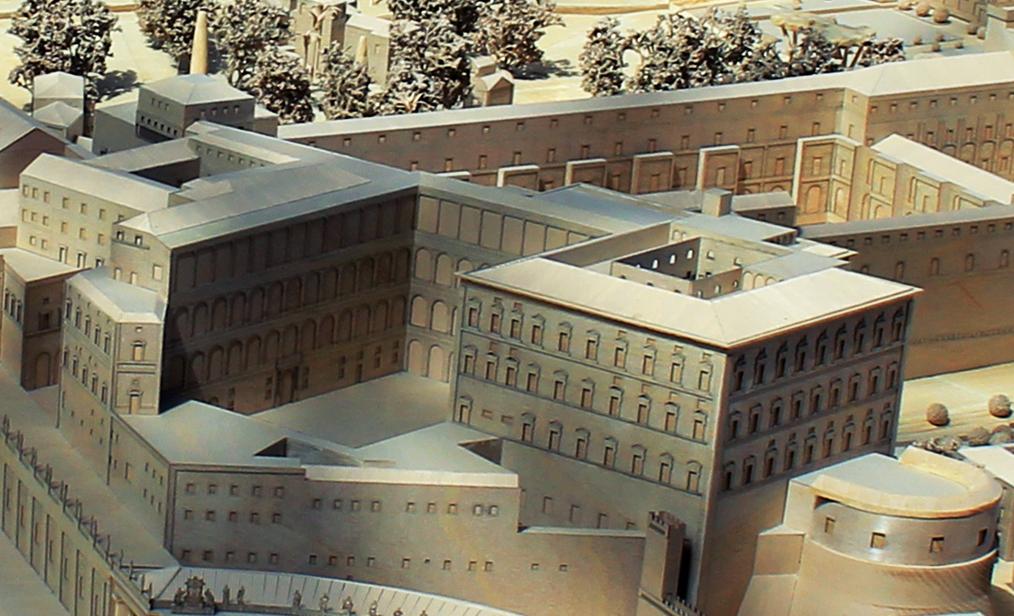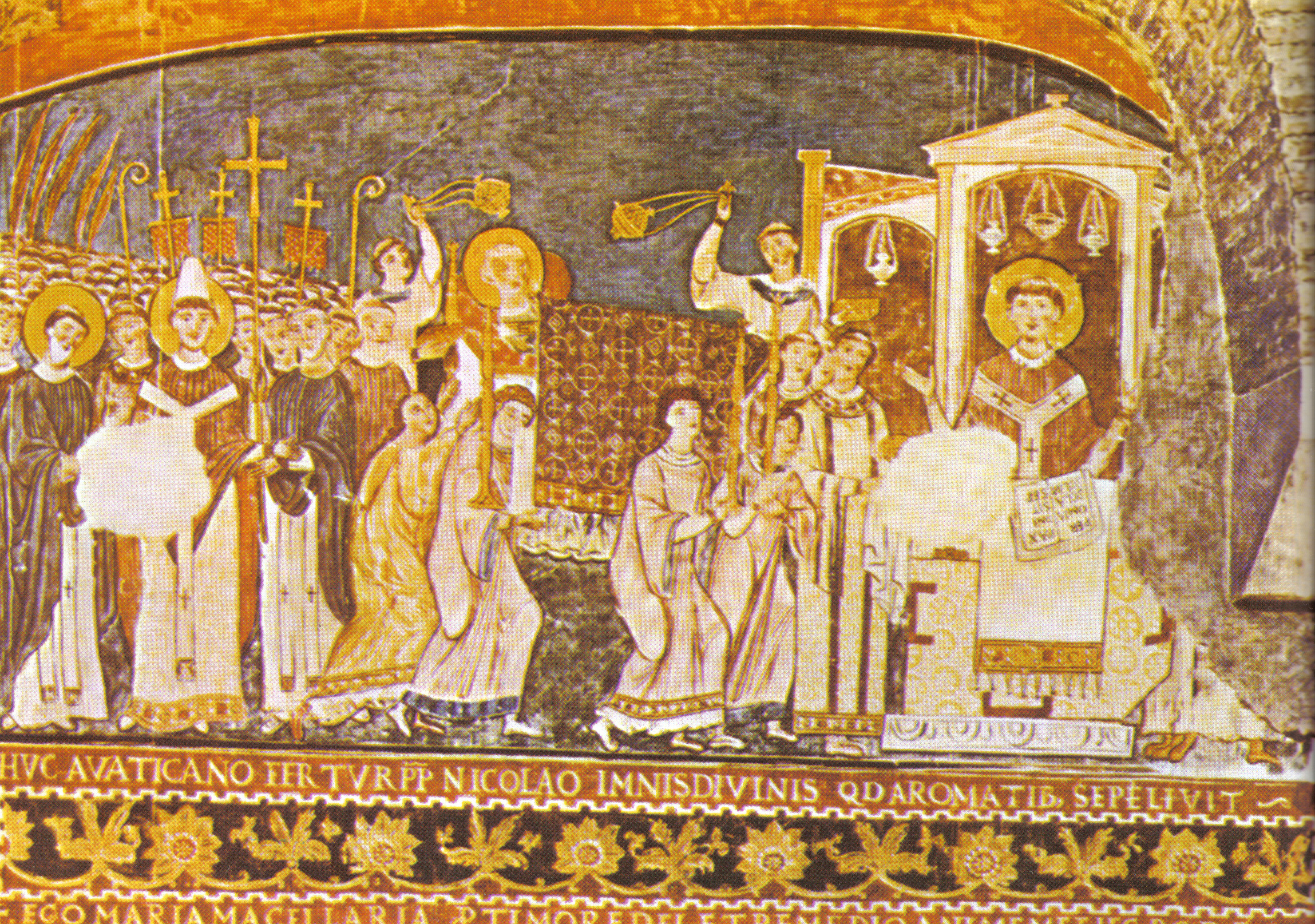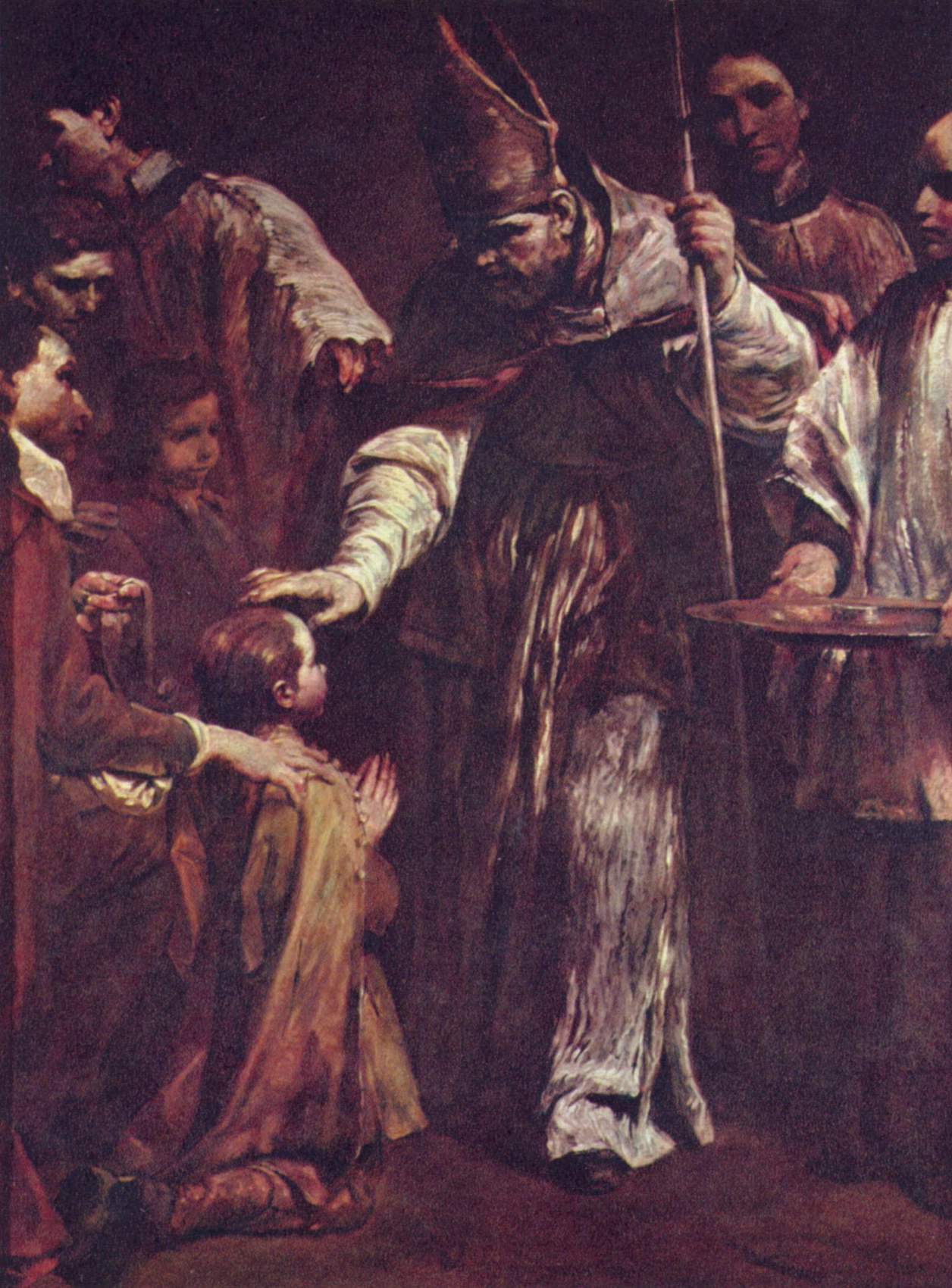|
1700 Papal Conclave
The 1700 papal conclave was convened following the death of Pope Innocent XII. It ended in the election of Cardinal Giovanni Albani as Pope Clement XI. The conclave saw a rise in the dominance of the ''zelanti'' faction College of Cardinals. It remained deadlocked for a month until the death of the childless Charles II of Spain. The cardinal electors anticipated that his death without a clear heir would cause a political crisis, and moved to elect a pope that was seen as non-partisan. Background During his pontificate Innocent XII worked to improve relations with Louis XIV of France. He reached a compromise with the French king by agreeing to the confirmation of all bishops that Louis had created since 1682 in return for the king's promise not to make them abide by the Declaration of the Clergy of France. The Habsburg Charles II of Spain was dying at this time and had no children. At Charles' request, Innocent advised that the throne pass to Philip of Anjou, grandson of Louis X ... [...More Info...] [...Related Items...] OR: [Wikipedia] [Google] [Baidu] |
Apostolic Palace
The Apostolic Palace ( la, Palatium Apostolicum; it, Palazzo Apostolico) is the official residence of the pope, the head of the Catholic Church, located in Vatican City. It is also known as the Papal Palace, the Palace of the Vatican and the Vatican Palace. The Vatican itself refers to the building as the Palace of Sixtus V, in honor of Pope Sixtus V, who built most of the present form of the palace. The building contains the papal apartments, various offices of the Catholic Church and the Holy See, private and public chapels, Vatican Museums, and the Vatican Library, including the Sistine Chapel, Raphael Rooms, and Borgia Apartment. The modern tourist can see these last and other parts of the palace, but other parts, such as the Sala Regia (Vatican), Sala Regia (Regal Room) and Cappella Paolina, had long been closed to tourists, though the Sala Regia allowed occasional tourism by 2019. The Scala Regia (Vatican), Scala Regia (Regal Staircase) can be viewed from one end and used ... [...More Info...] [...Related Items...] OR: [Wikipedia] [Google] [Baidu] |
Bandino Panciatici
Bandino Panciatici (10 July 1629 – 21 April 1718) as a Roman Catholic cardinal from 1690 to 1718. Biography Bandino Panciatici was born in Florence on July 10, 1629. He came from a Pistoian noble family, and was a relative of Pope Clement IX. He was educated at the University of Pisa, receiving a doctorate in law. After university, he traveled to Rome and practiced law with Giambattista De Luca. When his relative became Pope Clement IX in 1667, he entered the papal household. He became ''secondo collaterale'' of the Roman Curia. A short time after that, he became lieutenant of the auditor of the Apostolic Camera. When Pope Clement X was elected in 1670, he resigned to respect the laws of justice (''non mancare ai doveri della giustizia''), returning to Florence. In 1678, he was recalled to Rome by Pope Innocent XI to become secretary of the S.C. of the Apostolic Visit and of the State of Regulars. He then became S.C. of Bishops and Regulars in 1686. He later becam ... [...More Info...] [...Related Items...] OR: [Wikipedia] [Google] [Baidu] |
Papal Conclaves
A papal conclave is a gathering of the College of Cardinals convened to elect a bishop of Rome, also known as the pope. Catholics consider the pope to be the apostolic successor of Saint Peter and the earthly head of the Catholic Church. Concerns around political interference led to reforms after the interregnum of 1268–1271 and Pope Gregory X's decree during the Second Council of Lyons in 1274 that the cardinal electors should be locked in seclusion (Latin for 'with a key') and not permitted to leave until a new pope had been elected. Conclaves are now held in the Sistine Chapel of the Apostolic Palace in Vatican City.John Paul II (22 February 1996)''Universi Dominici gregis''. '' Apostolic constitution''. Vatican City: Vatican Publishing House. Since the Apostolic Age, the bishop of Rome, like other bishops, was chosen by the consensus of the clergy and laity of the diocese.Baumgartner 2003, p. 4. The body of electors was more precisely defined when, in 1059, the Colle ... [...More Info...] [...Related Items...] OR: [Wikipedia] [Google] [Baidu] |
1700 In Europe
Seventeen or 17 may refer to: *17 (number), the natural number following 16 and preceding 18 * one of the years 17 BC, AD 17, 1917, 2017 Literature Magazines * ''Seventeen'' (American magazine), an American magazine * ''Seventeen'' (Japanese magazine), a Japanese magazine Novels * ''Seventeen'' (Tarkington novel), a 1916 novel by Booth Tarkington *''Seventeen'' (''Sebuntiin''), a 1961 novel by Kenzaburō Ōe * ''Seventeen'' (Serafin novel), a 2004 novel by Shan Serafin Stage and screen Film * ''Seventeen'' (1916 film), an American silent comedy film *''Number Seventeen'', a 1932 film directed by Alfred Hitchcock * ''Seventeen'' (1940 film), an American comedy film *''Eric Soya's '17''' (Danish: ''Sytten''), a 1965 Danish comedy film * ''Seventeen'' (1985 film), a documentary film * ''17 Again'' (film), a 2009 film whose working title was ''17'' * ''Seventeen'' (2019 film), a Spanish drama film Television * ''Seventeen'' (TV drama), a 1994 UK dramatic short starring Christi ... [...More Info...] [...Related Items...] OR: [Wikipedia] [Google] [Baidu] |
1700 In Politics
Seventeen or 17 may refer to: *17 (number), the natural number following 16 and preceding 18 * one of the years 17 BC, AD 17, 1917, 2017 Literature Magazines * ''Seventeen'' (American magazine), an American magazine * ''Seventeen'' (Japanese magazine), a Japanese magazine Novels * ''Seventeen'' (Tarkington novel), a 1916 novel by Booth Tarkington *''Seventeen'' (''Sebuntiin''), a 1961 novel by Kenzaburō Ōe * ''Seventeen'' (Serafin novel), a 2004 novel by Shan Serafin Stage and screen Film * ''Seventeen'' (1916 film), an American silent comedy film *''Number Seventeen'', a 1932 film directed by Alfred Hitchcock * ''Seventeen'' (1940 film), an American comedy film *''Eric Soya's '17''' (Danish: ''Sytten''), a 1965 Danish comedy film * ''Seventeen'' (1985 film), a documentary film * ''17 Again'' (film), a 2009 film whose working title was ''17'' * ''Seventeen'' (2019 film), a Spanish drama film Television * ''Seventeen'' (TV drama), a 1994 UK dramatic short starring Christien ... [...More Info...] [...Related Items...] OR: [Wikipedia] [Google] [Baidu] |
17th-century Elections In Europe
The 17th century lasted from January 1, 1601 ( MDCI), to December 31, 1700 ( MDCC). It falls into the early modern period of Europe and in that continent (whose impact on the world was increasing) was characterized by the Baroque cultural movement, the latter part of the Spanish Golden Age, the Dutch Golden Age, the French ''Grand Siècle'' dominated by Louis XIV, the Scientific Revolution, the world's first public company and megacorporation known as the Dutch East India Company, and according to some historians, the General Crisis. From the mid-17th century, European politics were increasingly dominated by the Kingdom of France of Louis XIV, where royal power was solidified domestically in the civil war of the Fronde. The semi-feudal territorial French nobility was weakened and subjugated to the power of an absolute monarchy through the reinvention of the Palace of Versailles from a hunting lodge to a gilded prison, in which a greatly expanded royal court could be more easily k ... [...More Info...] [...Related Items...] OR: [Wikipedia] [Google] [Baidu] |
1700 In The Papal States
Seventeen or 17 may refer to: *17 (number), the natural number following 16 and preceding 18 * one of the years 17 BC, AD 17, 1917, 2017 Literature Magazines * ''Seventeen'' (American magazine), an American magazine * ''Seventeen'' (Japanese magazine), a Japanese magazine Novels * ''Seventeen'' (Tarkington novel), a 1916 novel by Booth Tarkington *''Seventeen'' (''Sebuntiin''), a 1961 novel by Kenzaburō Ōe * ''Seventeen'' (Serafin novel), a 2004 novel by Shan Serafin Stage and screen Film * ''Seventeen'' (1916 film), an American silent comedy film *''Number Seventeen'', a 1932 film directed by Alfred Hitchcock * ''Seventeen'' (1940 film), an American comedy film *''Eric Soya's '17''' (Danish: ''Sytten''), a 1965 Danish comedy film * ''Seventeen'' (1985 film), a documentary film * ''17 Again'' (film), a 2009 film whose working title was ''17'' * ''Seventeen'' (2019 film), a Spanish drama film Television * ''Seventeen'' (TV drama), a 1994 UK dramatic short starring Christien ... [...More Info...] [...Related Items...] OR: [Wikipedia] [Google] [Baidu] |
Pope Clement I
Pope Clement I ( la, Clemens Romanus; Greek: grc, Κλήμης Ῥώμης, Klēmēs Rōmēs) ( – 99 AD) was bishop of Rome in the late first century AD. He is listed by Irenaeus and Tertullian as the bishop of Rome, holding office from 88 AD to his death in 99 AD. He is considered to be the first Apostolic Father of the Church, one of the three chief ones together with Polycarp and Ignatius of Antioch. Few details are known about Clement's life. Clement was said to have been consecrated by Peter the Apostle, and he is known to have been a leading member of the church in Rome in the late 1st century. Early church lists place him as the second or third bishop of Rome after Peter. The ''Liber Pontificalis'' states that Clement died in Greece in the third year of Emperor Trajan's reign, or 101 AD. Clement's only genuine extant writing is his letter to the church at Corinth ( 1 Clement) in response to a dispute in which certain presbyters of the Corinthian church had been deposed. ... [...More Info...] [...Related Items...] OR: [Wikipedia] [Google] [Baidu] |
Alexander VIII
Pope Alexander VIII ( it, Alessandro VIII; 22 April 1610 – 1 February 1691), born Pietro Vito Ottoboni, was head of the Catholic Church and ruler of the Papal States from 6 October 1689 to his death in February 1691. He is to date the last pope to take the pontifical name of "Alexander" upon his election to the papacy. Alexander VIII is known for having overturned many of the policies of his predecessor, Innocent XI, deciding to indulge in nepotism in order to further enrich his family. Such nepotism exhausted the papal treasury, later forcing his successor, Innocent XII, to implement austere measures to restore the papal coffers. Despite his brief papacy, during which little of importance was undertaken, Alexander VIII is known for having condemned the doctrines of the so-called philosophical sin which was being taught in schools run by the Society of Jesus. Also during his papacy, King Louis XIV of France restored Avignon to the Holy See as a territory of the Papal Stat ... [...More Info...] [...Related Items...] OR: [Wikipedia] [Google] [Baidu] |
Giacomo Antonio Morigia
Jacopo Antonio Morigia oalso known as Giacomo Antonio Moriggia (Milan, 23 February 1633 – Pavia, 8 October 1708 ) was a cardinal and Italian Catholic archbishop. He was Bishop of San Miniato from 1 September 1681 - 15 February 1683, Metropolitan Archbishop of Florence from 15 February 1683 - 23 October 1699, Cardinal Priest of Santa Cecilia from 11 April 1698 - 8 October 1708, Archpriest of the Liberian Basilica of Santa Maria Maggiore from 20 April - 28 October 1699 and also Bishop of Pavia from 24 January 1701 - 8 October 1708. He was one of the Cardinals created by Innocent XII. Life He came from the illustrious Milanese family of Moriggia, and studied mathematics and architecture, and only joined the church latter in life. Giacomo Antonio Morigia founded the Barnabites , image = Barnabites.svg , image_size = 150px , caption = One version of the Barnabite logo. "P.A." refers to Paul the Apostle and the three hills symbo ... [...More Info...] [...Related Items...] OR: [Wikipedia] [Google] [Baidu] |
Benefice
A benefice () or living is a reward received in exchange for services rendered and as a retainer for future services. The Roman Empire used the Latin term as a benefit to an individual from the Empire for services rendered. Its use was adopted by the Western Church in the Carolingian, Carolingian Era as a benefit bestowed by the crown or church officials. A benefice specifically from a church is called a precaria (pl. ''precariae)'', such as a stipend, and one from a monarch or nobleman is usually called a fief. A benefice is distinct from an allodial title, allod, in that an allod is property owned outright, not bestowed by a higher authority. Roman Catholic Church Roman imperial origins In ancient Rome a ''benefice'' was a gift of land (precaria) for life as a reward for services rendered, originally, to the state. The word comes from the Latin language, Latin noun ''beneficium'', meaning "benefit". Carolingian Era In the 8th century, using their position as Mayor of the Pa ... [...More Info...] [...Related Items...] OR: [Wikipedia] [Google] [Baidu] |
Pietro Ottoboni (cardinal)
Pietro Ottoboni (2 July 1667 – 28 February 1740) was an Italian cardinal and grandnephew of Pope Alexander VIII, who was also born Pietro Ottoboni. He is remembered especially as a great patron of music and art. Ottoboni was the last person to hold the curial office of Cardinal-nephew, which was abolished by Alexander's successor, Pope Innocent XII, in 1692. Ottoboni '"loved pomp, prodigality, and sensual pleasure, but was in the same time kind, ready to serve and charitable". Overview Pietro was born in Venice to the noble Ottoboni family, whose most prominent member had been his granduncle Pope Alexander VIII (1689–1691). The family bought their way into Venetian nobility in the 17th century. He received the clerical tonsure and minor orders on 20 October 1689 and was created cardinal deacon in the consistory of 7 November 1689, receiving the red hat on 14 November. He was superintendent general of the affairs of the Apostolic See and governor of the cities of Fermo an ... [...More Info...] [...Related Items...] OR: [Wikipedia] [Google] [Baidu] |







